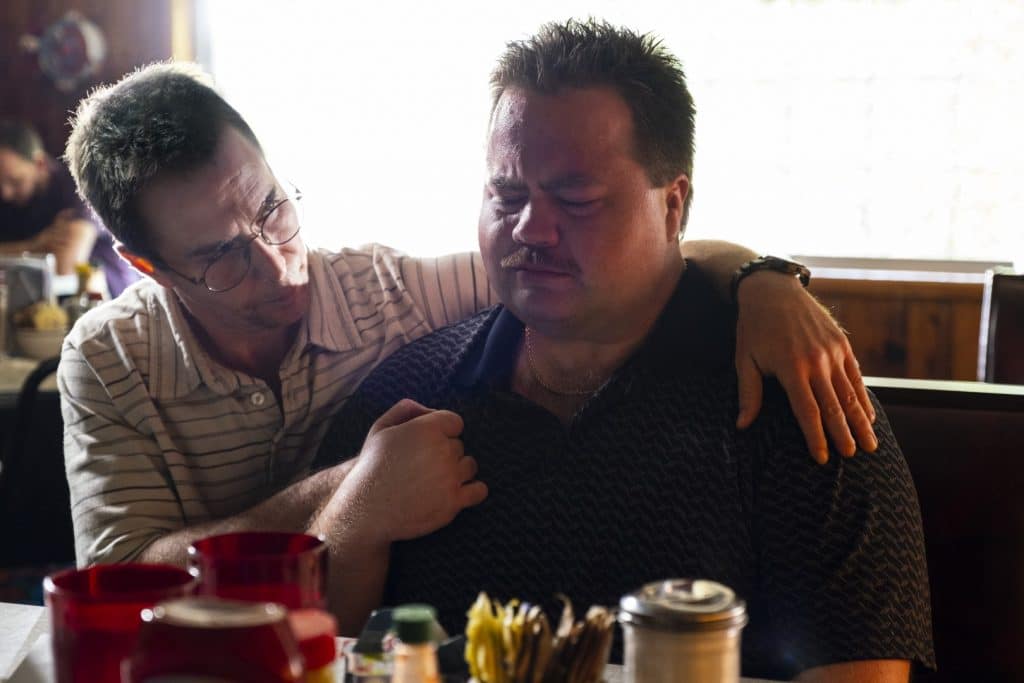Read also:
How to Watch FX Live Without CableHow To Watch AMC Without CableHow to Watch ABC Without CableHow to Watch Paramount Network Without CableClint Eastwood’s latest tests the limits of perception, even as it loses the script with its portrayal of the media.
There’s never a doubt that Richard Jewell (I,Tonya scene-stealer Paul Walter Hauser) isn’t innocent in Clint Eastwood’s latest film. That may count as a spoiler for someone unfamiliar with Eastwood’s latest preoccupations, but that thesis is the bedrock of the director’s recent portraits of the wrongfully accused and collectively misunderstood. Last year’s dual experiments 15:17 To Paris and The Mule both dabbled with thematic elements of the deceptively judged, but Richard Jewell is arguably a return to a more traditional Hollywood mode – even as that in no way means Eastwood is beholden to the expectations of this style of heightened biopic.
Unafraid of broad strokes, the film traffics in the kind of binary moral coloring that on the surface feels dramatically simplistic. But it effectively contributes to a subjective texture of institutional distrust that’s only strengthened through Hauser’s weening performance.
Hauser’s portrayal is best described as one of well-intentioned delusion, as Jewell fails upward through a series of law enforcement-adjacent positions into the ordained role of the man who found the bomb before it went off at Centennial Park during the 1996 Atlanta Olympics, potentially saving thousands of lives.

Like two of Eastwood’s other subjects this decade – Tom Hanks’ Sully and Bradley Cooper’s Chris Kyle – Hauser’s character is another symbol of Eastwood’s continued interest in wholesome Americana and the inherently decent. Likewise, the ability to detect a political bias and undergirding sourness against the most powerful systems in his films is less a coherent critique than a feature of his latter-day films.
Understandably, that type of stacked-deck editorialization doesn’t always work from either a dramatic or moral point of view, as has been the case with the controversy surrounding the character of Kathy Scruggs (Olivia Wilde), who’s fictionally portrayed here as sleeping with a FBI agent (a comfortably smug Jon Hamm) for a scoop.
Even setting aside the odiousness of that repeated trope, there’s no good faith or bad faith defense of this kind of bald misogyny, even placed against the film’s insistent disrespect for the powers that be. Scruggs’ character is easily the worst part of the film – a bulldog local reporter lost at sea in a secondary market.
Hauser’s character is another symbol of Eastwood’s continued interest in wholesome Americana and the inherently decent.
Her primary onscreen journalistic diligence comes when she traces the steps from Centennial Park to the payphone in a squib of a scene meant to signal the epochal moment of her turn. This arc wholly backfires on a dramatic level, especially in a late press conference scene where Scruggs breaks down in realization of the effects of her reporting.
But Scruggs’s character and Wilde’s undermined performance is a tedious one-dimensional outlier in a film that generally finds an engaging friction in the layers of perception of Jewell as he’s seen by the public, the FBI, and through his own counterintuitive fealty to authority and core personal belief in the goodness of law enforcement.
Eastwood and screenwriter Billy Ray have no difficulty conjuring up horrifyingly seductive scenarios to counter this notion, often showcasing Jewell’s own authentic kindness in the process. Yet again, that sounds like a narrative corner, but it’s Hauser who continually elevates this potentially archetypal script by bringing a lived-in confusion to Jewell.

All the while, Jewell is in thrall to Watson Bryant (Sam Rockwell), a lawyer who he made chance acquaintances with ten years earlier as a supply room clerk at a nondescript law office and who ends up taking the case after Jewell first calls him about the logistics of a book deal. In terms of both character and performance, Rockwell is shaking the film for all its worth, grandstanding about the injustices of Jewell’s cases as often as he’s begging Jewell to not run his mouth about how he’s fellow law enforcement to his accusers.
Like Kathy Bates as Jewell’s mother Bobi, there’s something too self-consciously movie star-like about his turn. But he’s saved by his very organic frustration, as he learns each new detail about Jewell’s life and how perfectly he fits the profile of the attention-seeker on paper.
The script (and Eastwood) lean heavily into that red-blooded American profile, even making time for a sight gag of his bed filled with an arsenal ranging from multiple hunting rifles to an M16, to which Bryant glibly asks, “Are you worried about the Zombie apocalypse?” Jewell sheepishly responds something to the effect of, “I like hunting.”
Maybe that should be perceived as a dog whistle, maybe it shouldn’t. But there’s a straight-ahead plainness to these scenes that feels less evangelical than an examination of biases. It certainly doesn’t always work, but let’s assume for a moment Richard Jewell is exactly who he says he is.
Richard Jewell makes a fateful call in theaters December 13th.